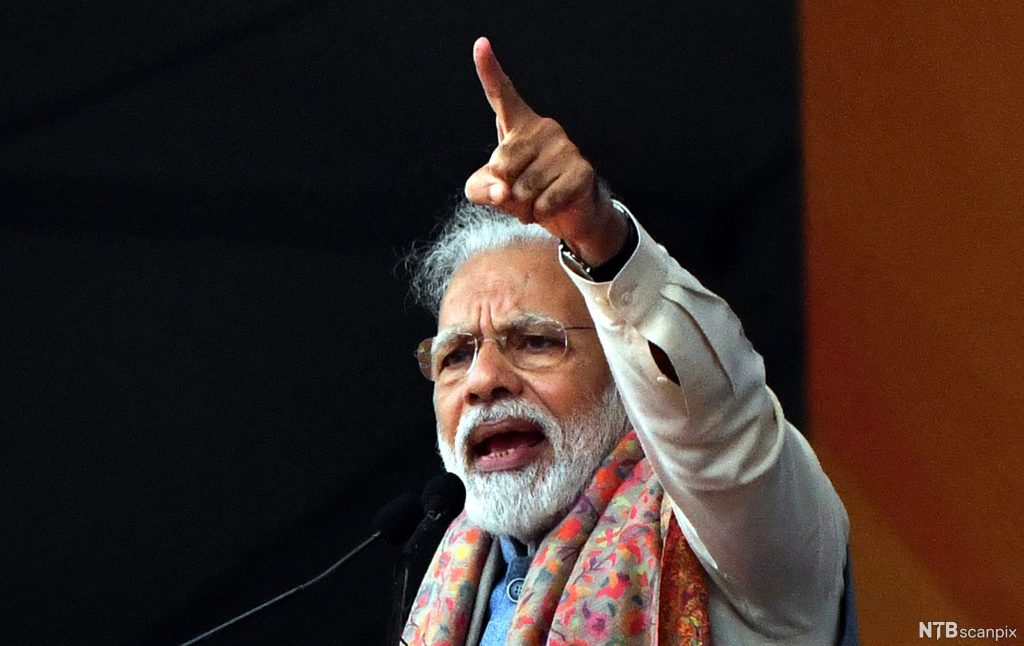By Khadija Khan
A newly released Bollywood film that claims to tell the story of Hindu and Christian women who were lured into joining the Islamic State group has caused huge controversy in India.
The Kerala Story – set in India’s southernmost state – has polarised opinions not only in the south Asian country, but also abroad.
The filmmakers originally claimed that it is based on the “gut-wrenching stories of 32,000 females” who were allegedly forced to convert to Islam and then radicalised to join the death cult that is ISIS. However, that figure was found to have no evidentiary basis, and was subsequently excised from the official trailer.
Soon after the movie’s release, The Kerala Story was banned by the West Bengal government, fearing communal tensions (which has indeed come to pass in states like Maharashtra). In Tamil Nadu, theatres decided to pull out the movie, citing protests and low audiences.
Unsurprisingly, critics have branded the film as anti-Muslim “propaganda“.
Kerala Chief Minister Pinarayi Vijayan said the trailer gives the impression that the movie is “deliberately produced with the aim of communal polarisation and spreading hate propaganda against Kerala.”
Award-winning Bollywood actor Naseeruddin Shah, expressing his concerns about the film, said: “The kind of stuff that’s pure, undisguised propaganda is being lapped up and it’s a reflection of the zeitgeist of the times.” Sharing his views was fellow actor Kamal Hassan, who said: “It’s not enough if you write ‘true story’ at the bottom as a logo. It has to really be true. And that is not true.”
Despite these reservations The Kerala Story has been heavily promoted by the ruling Bharatiya Janata Party (BJP). Two most populous BJP-ruled states, Madhya Pradesh and Uttar Pradesh, waived government taxes over the price of tickets to promote the movie. At an election rally in Karnataka, the PM Narendra Modi insisted that the movie “shows the ugly truth of terrorism and exposes terrorists’ design.”

While it is true that the members of ISIS succeeded in recruiting vulnerable men and women from around the world, the hyperbolised numbers about women being abused and forced to convert are unwarranted. Likewise, the fear over ISIS taking over the Kerala state appears to have no basis in reality.
An unfounded theory of “love jihad”, which implies that there is a coordinated effort by Muslim men to convert Indian women to Islam through marriage, has also been pushed in the movie to magnify the impact over the audience.
Not to mention the reckless effort in the movie to infantilise apparently ambitious, strong and independent woman who joined ISIS but seemingly felt remorse only after the demise of the group. The narrative implies that all women are vulnerable and incapable of making their own choices, which absolves IS brides from the alleged crimes of aiding and abetting jihadi fighters.
But what is important to note is how this movie is merely a symptom of a deeper malaise at the heart of modern Indian society.
It is a tragedy of our time that India, once the torchbearer of secularism and democracy, has become a battlefield for religious zealots. Whether they’re Islamist or Hindutwa, they see and evaluate everything through the prism of religious orthodoxy. Under the nationalistic Modi, intolerance and even violence towards minorities has become more acceptable.
What’s even worse is that these tensions are not confined to India, but have spilled over into British shores. In Birmingham, Muslim activists stormed a cinema and demanded it ban the film from being shown on the grounds of causing offence.
The protesters were led by notorious agitator Shakeel Afsar. Mr Afsar said in a clip: “This film is lies” and An extremist has endorsed this film. We will not allow it.”
The controversial group Muslim Engagement and Development (MEND) encouraged already agitated protesters to pressurise cinemas through lobbying to cancel the screening of the film, claiming it would “no doubt fuel Islamophobic tensions and divisiveness.”
Of course, people have a right to disapprove of films they may find controversial. However, demanding a movie to be cancelled is uncalled for – regardless of how “offensive” it might be.
This is a continuation of the same vigilantism that we witnessed not long ago over the screening of The Lady of Heaven, which caused offence to some Muslims for its depiction of the Prophet Muhammad’s daughter.
The demand to ban the film because a bunch of people disagree with it is a tactic of censoring unwanted and opposing opinions, which is antithetical to the values of free speech we uphold in the face of authoritarianism.
Yes, The Kerala Story relies on disputed facts and figures as well as a highly exaggerated scale of the terrorist threat in India in order to make a salacious film – which questions the movie’s credibility.
But we should let cinema goers decide this for themselves. And the narrative of the film can be challenged and rebutted through open discussions. Lest we forget, freedom of expression also includes the right to criticise religious ideas and beliefs without any fear.
It is not right in a free, democratic society that religious mobs feel entitled to have the final say on what should and shouldn’t be watched in cinemas. It should worry us all that the British authorities seem to have caved into the demands of these fanatics.
As far as The Kerala Story is concerned, it could have been a valiant effort to highlight religious tyranny, if only it had sincerely portrayed the threat of Islamist extremism. There is no doubt that the threat of Islamist radicalisation is real. Young men and women all over the world have fallen prey to this cultish ideology.
The horrors are all too real and fully understood. That is why a film like The Kerala Story, with its misleading facts and figures, is just unnecessary.

Khadija Khan is a journalist and commentator based in London. You can follow her on Twitter.

